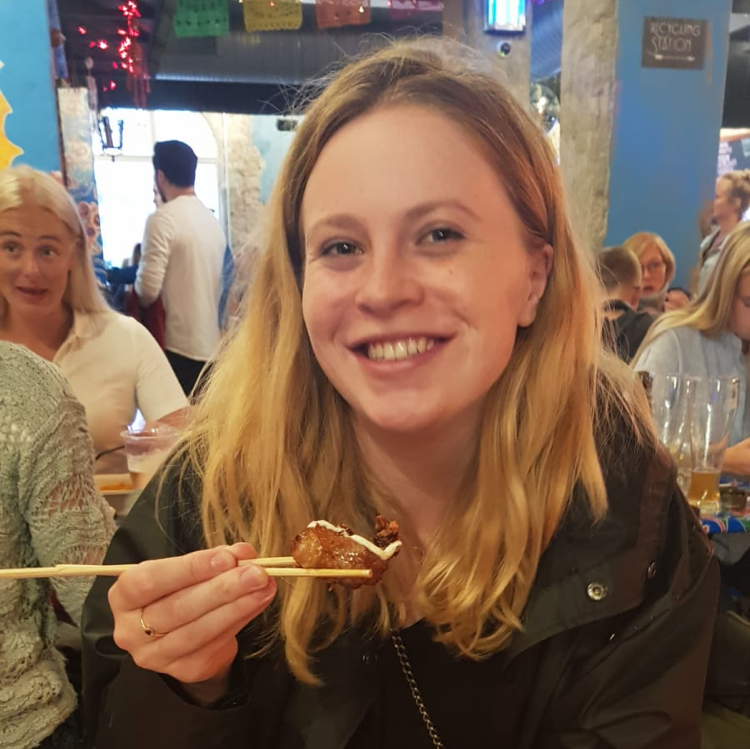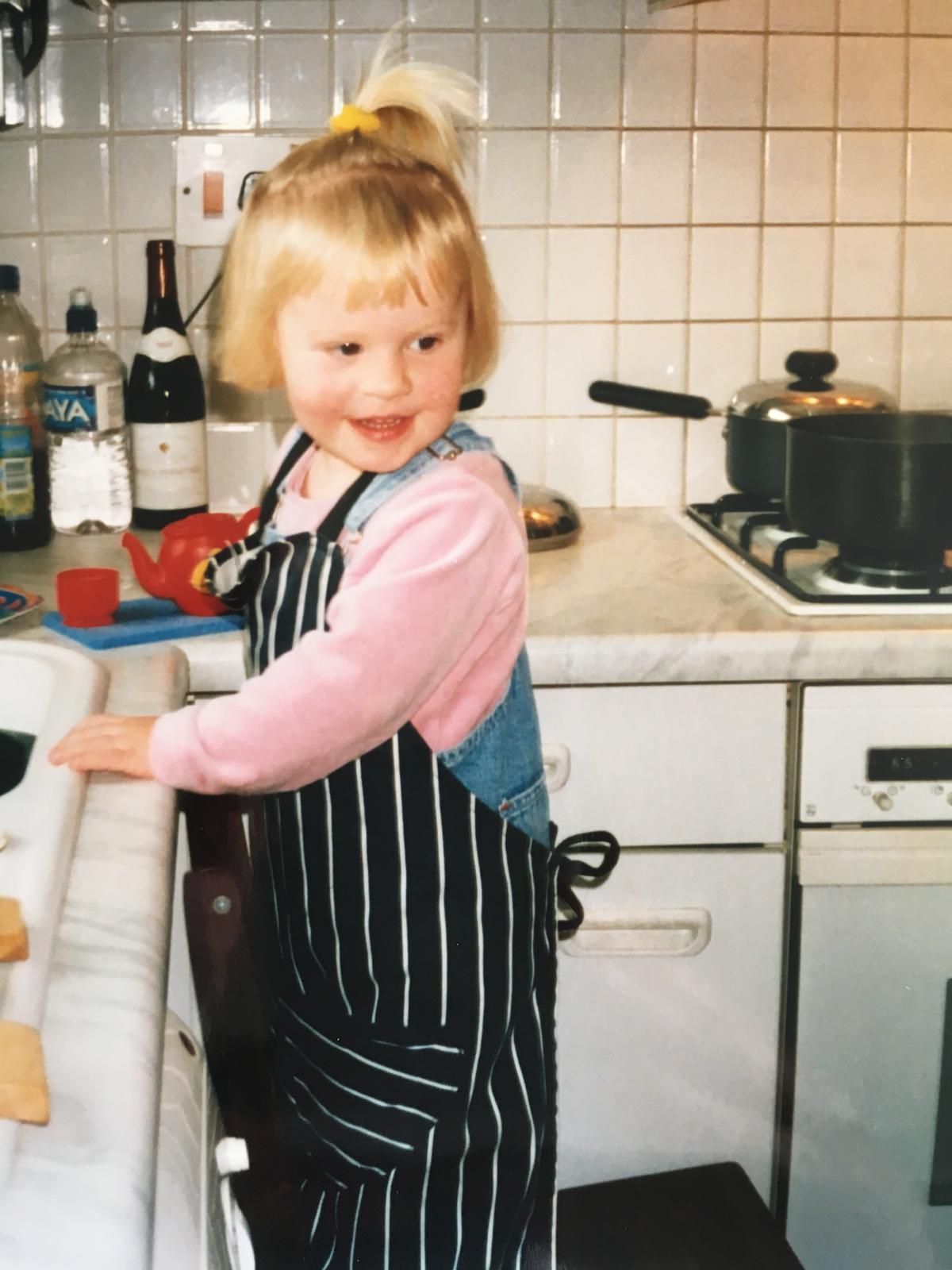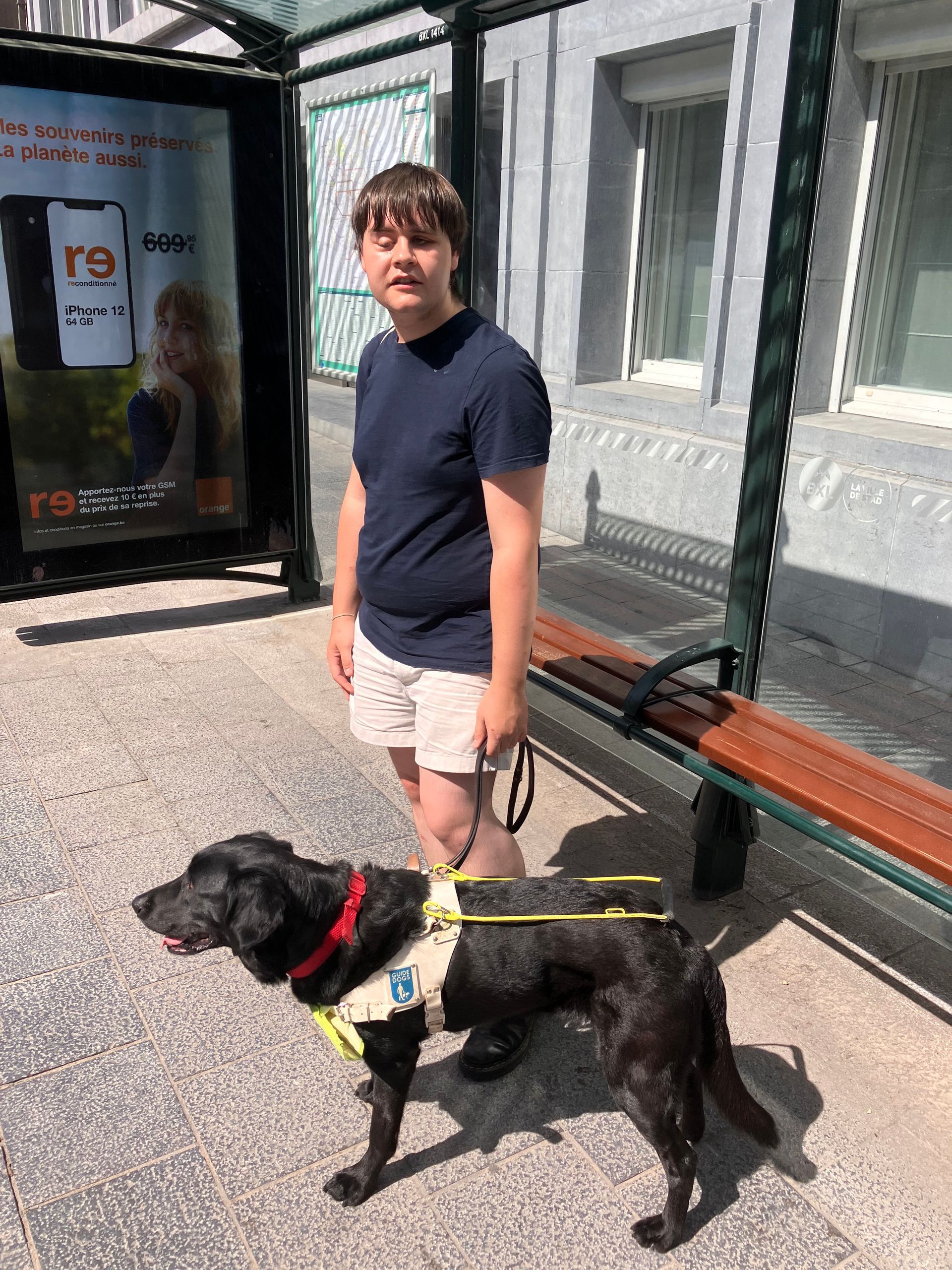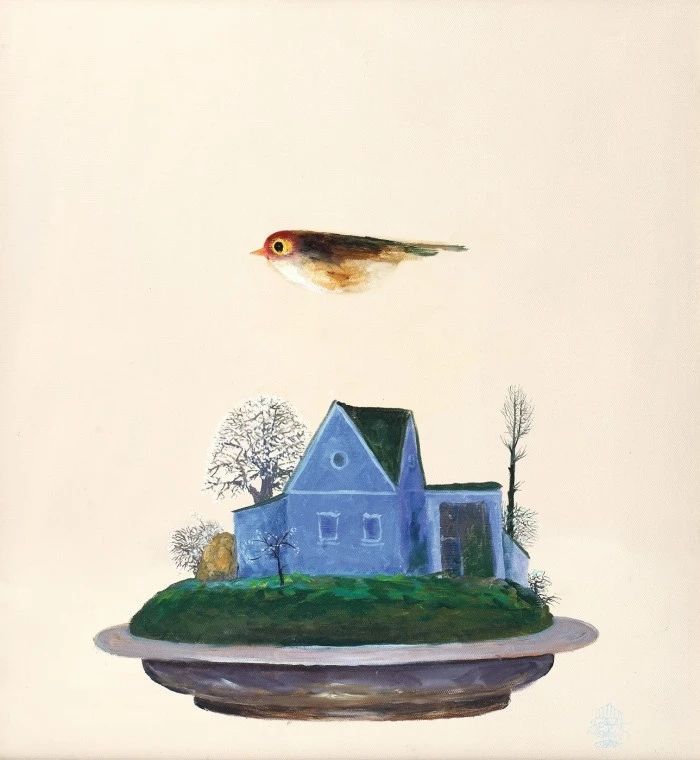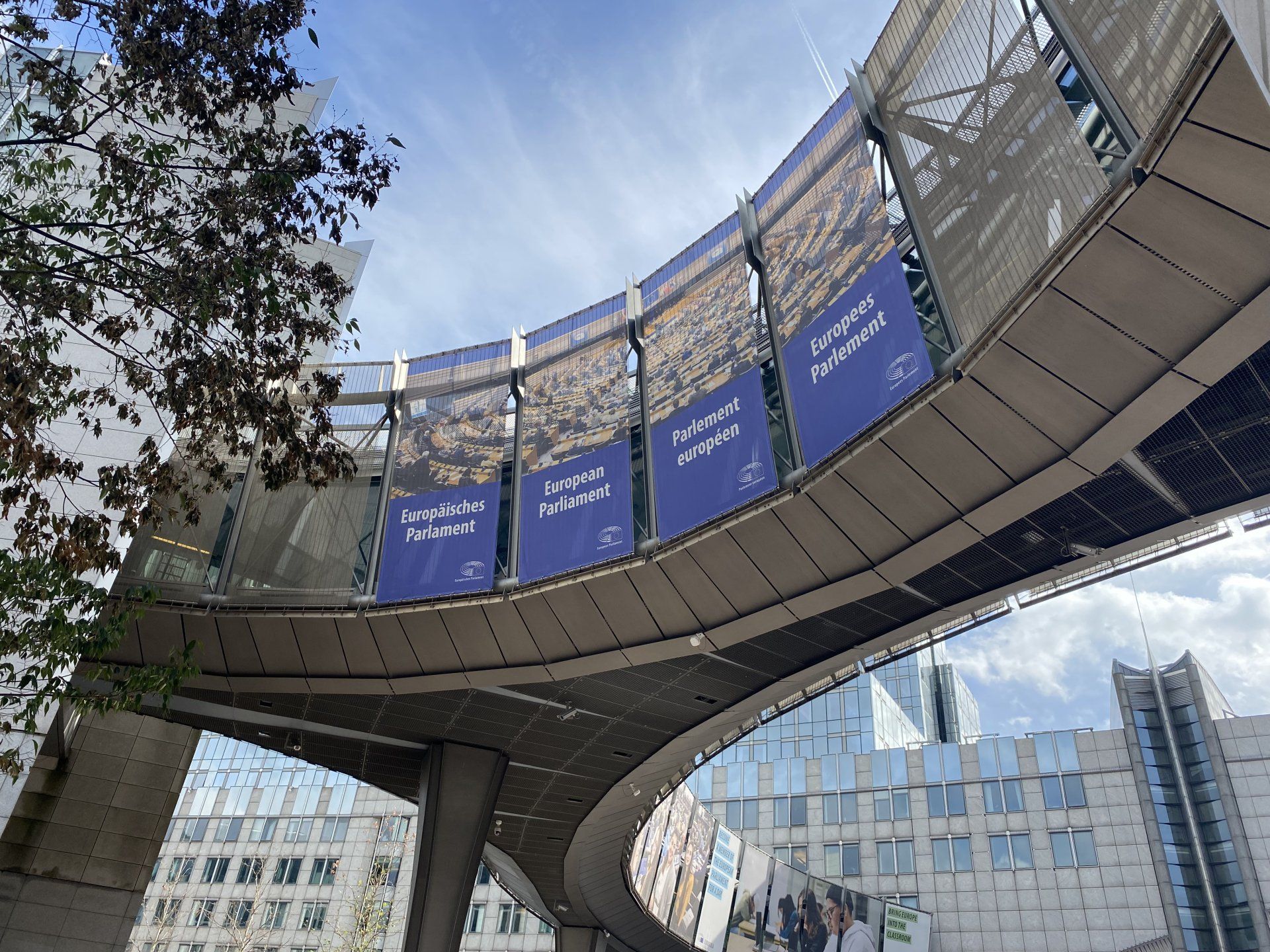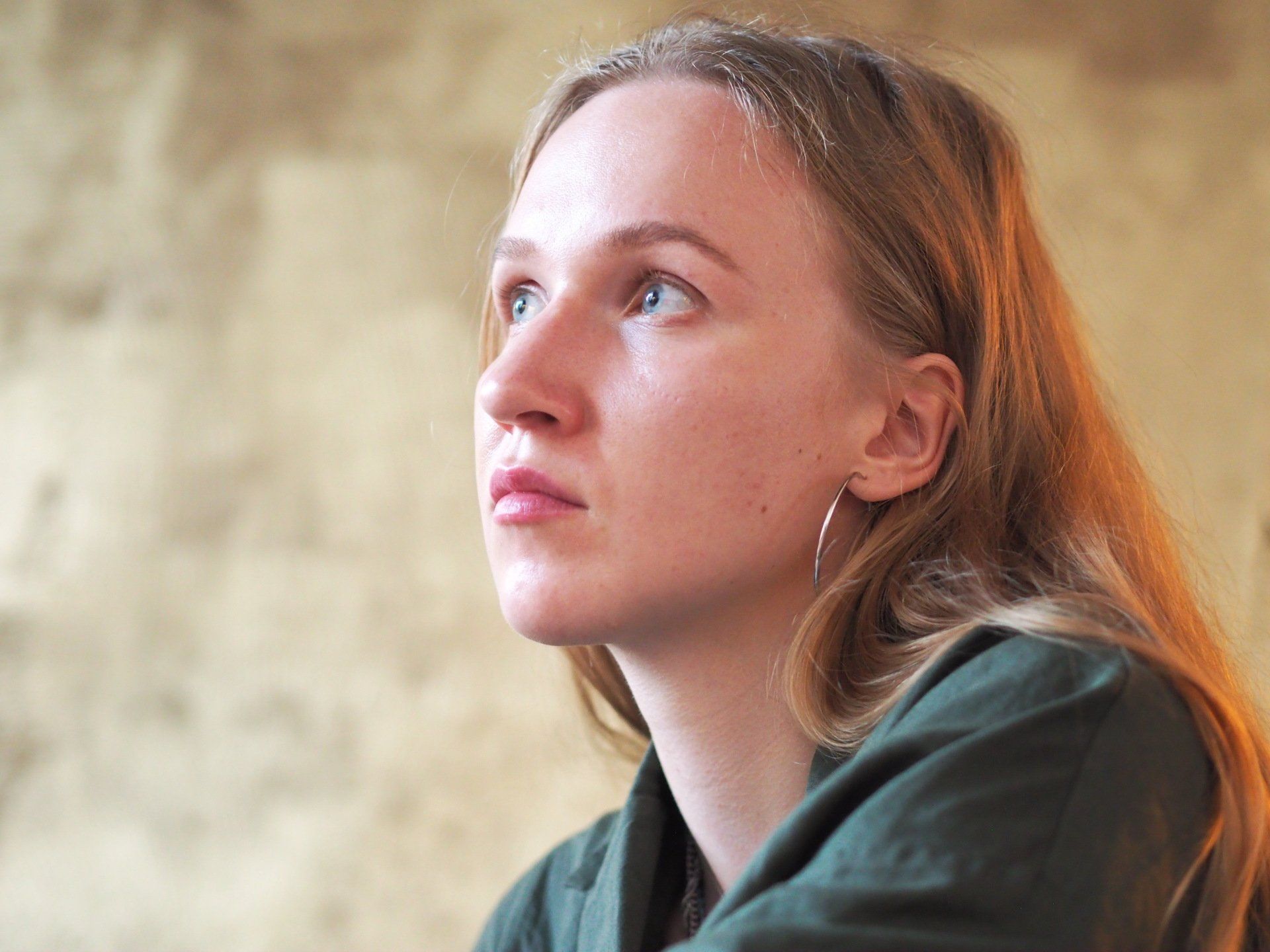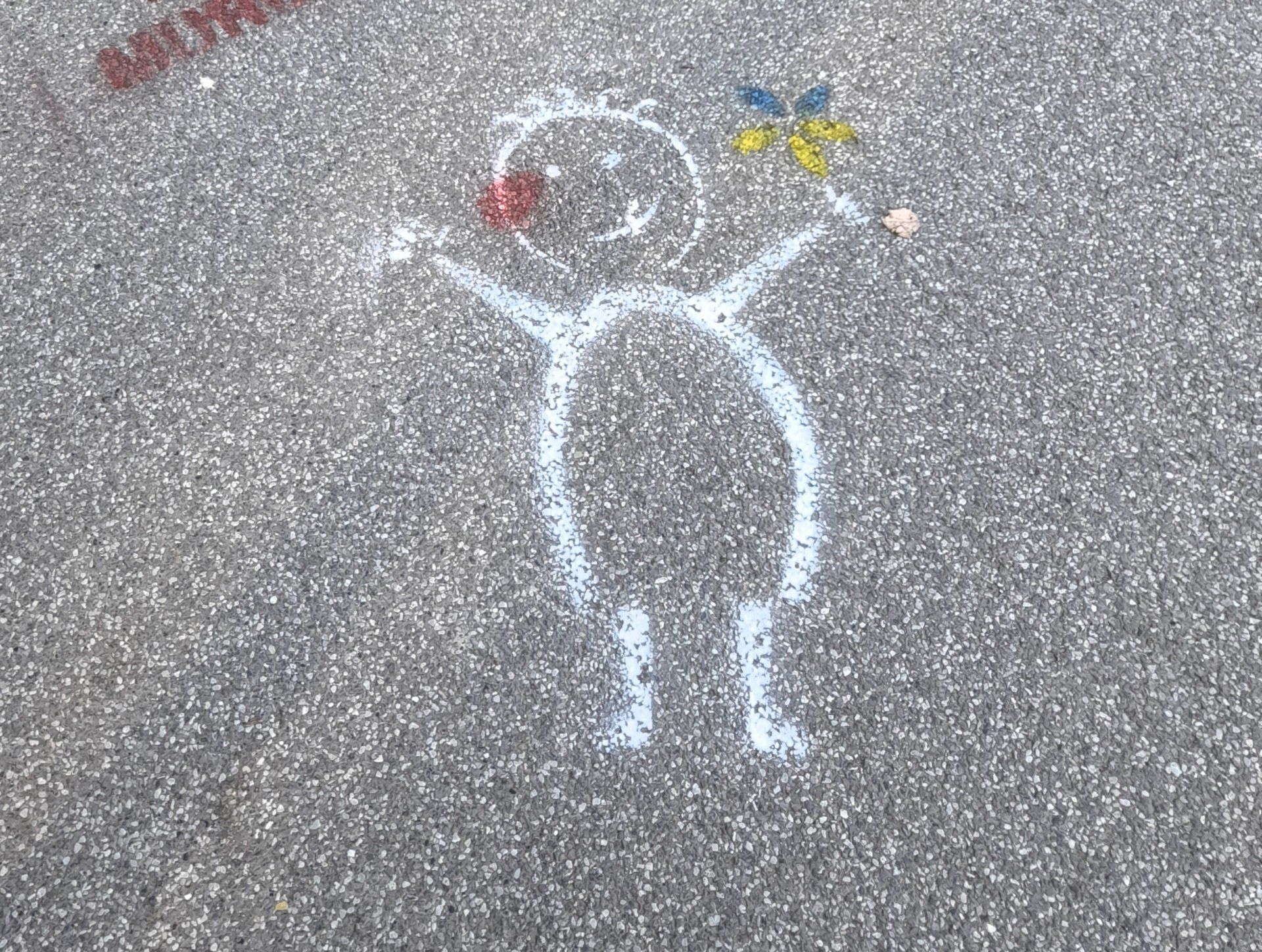Cheese, chocolate and how I want to eat
By Lauren Brown
Food is something that connects us all – whether it’s a quick stir fry, a hungover takeaway pizza or a Sunday roast around the table with your family and friends. But it is also something that means different things to everyone. As you may be able to tell from the first sentence, a good Sunday roast reminds me of my family, whilst a pizza is my cure-all from a messier night than intended.
Despite being a self-proclaimed foodie, and an enthusiastic if not always successful cook, how I feel about food and how it’s produced isn’t something I examine in detail too often. I know I love cooking and sharing food with others, I try to be a mildly successful vegetarian most of the time and I know cheese and chocolate are the primary reasons I would never go vegan. However, it wasn’t until I sat down as part of Flare Governance’s dialogue workshop at the BMW Foundation that I really examined this.
Discussing topics from the social and cultural norms around food, to how we produce it, I began to think more and more about how food shapes my life. I began to question what I ate, why I ate it, and what I could do to create a world where I can balance my love for cheese with the environmental considerations of that. How could I feel connected to the food I ate, without knowledge of where and how it was produced, and under what connections? And how could I use food to connect to the people around me?
Through discussions in smaller groups, we started to think of both what problems we saw in the world today and what we wanted the future of food to be. Answers to ‘fixing’ the food system varied from prioritising local produce, enriching the soil and inviting everyone to share food together. And at the heart of both these visions and solutions was a desire for food to be just and to work to connect us.
It’s this that we should take forward, in order to challenge and to create a food system that is fair and just and belongs to all.
Flare Blog
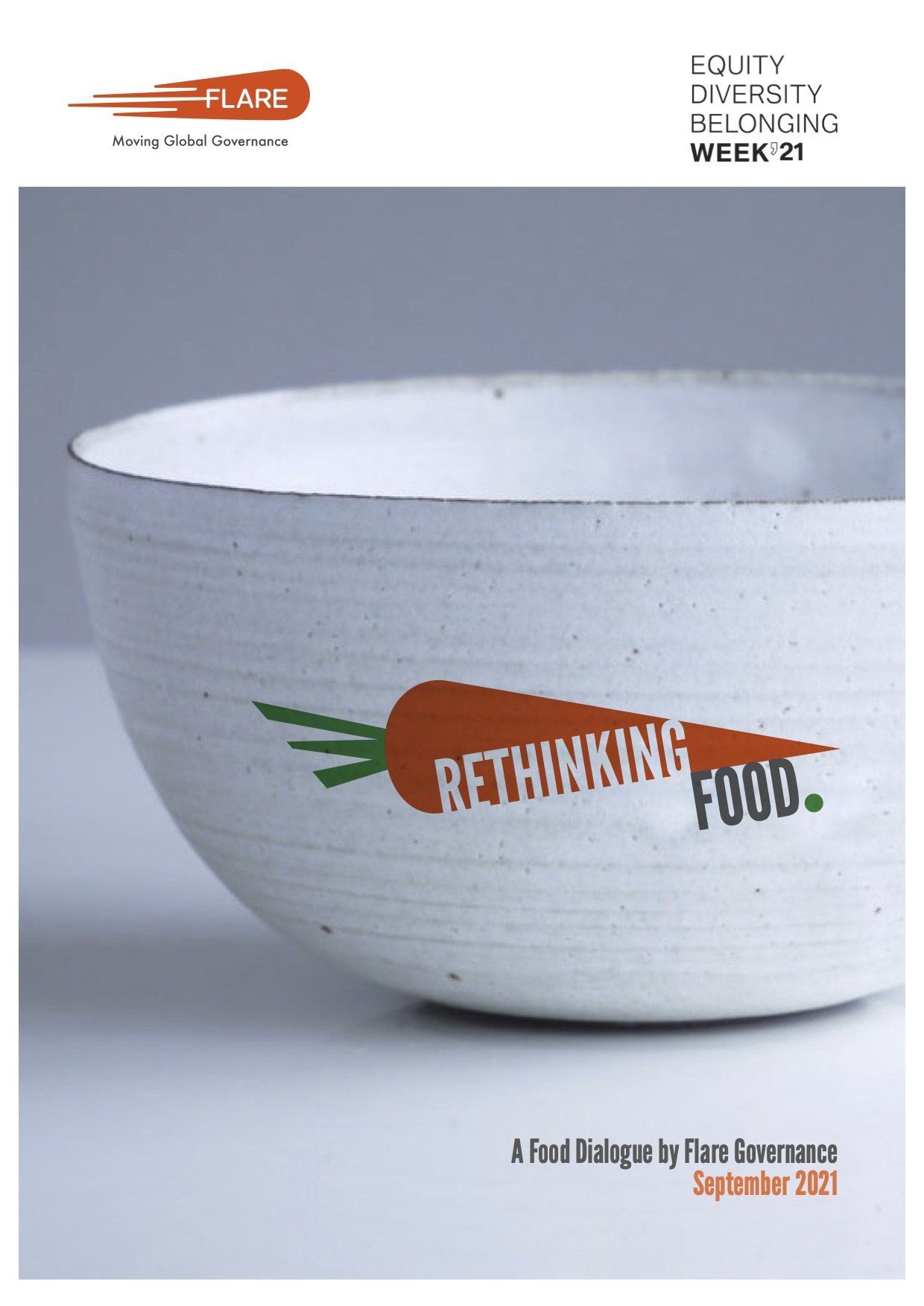
Is making us hungry. Read about how we re-imagined the global food system in 90 minutes in our latest report, available here . This stuff matters. Rethinking is about making space for hope, changing the story by which we live. Moving from me to us to our whole society. We take things that feel stuck and fixed and paint the picture of how they can be radically better. We do it together as equals, no matter our level of knowledge and experience. At the heart of Rethinking we’ve planted a simple seed of an idea. If we agree where we need to get to, we can find our way there. We can work out how to make change happen when we allow ourselves to imagine how things should be. The essential first step to get over our fear of being stuck in the now, in how things are, in feeling there’s no choice and no alternative – is to say what should be. It sounds banal, but it’s actually quite hard. We had a go during Rethinking food a couple of months ago. We’d spent a little while in a small group talking about access to food, injustice, food deserts, class, food snobbery and a multitude of ills. We were stumped when we tried to turn things around and say what “justice” looks like for an overweight single mum working two jobs and living in a “food desert” in the USA. We could see what the multiple injustices were, but naming what should be took us a little while. What should her life be like? What needs to happen to make that possible? You might recognize that pattern from how we approach challenges in public discourse. We’re very used to denouncing bad things, calling emergencies, demanding change from others. It’s a lot harder to name what should be, what the good society looks like, how we will feel when we’ve righted social and environmental wrongs. And once we’ve done that, I promise you, we’re cooking with gas (or something less planet heating). Over the last two years, we’ve developed a simple three-step method that takes people from hopelessness to action, from lone voices to collectives, from me to us. It’s not voodoo. It’s just humans talking, being brave and being nice. We think it can change society. No apologies for optimism. We’ve done it for football and eating , two things that feel like they belong to our private lives, but that are the most powerful embodiment of our moral systems, because we feel them viscerally. We’ve got a couple of high stakes experiments lined up for the end of 2021. If you’re tired and sad and despondent and you despair at the state of the world, please join us, fund us , talk drop us a line on hello@flaregovernance.eu . We have hope flowing out of every pore.
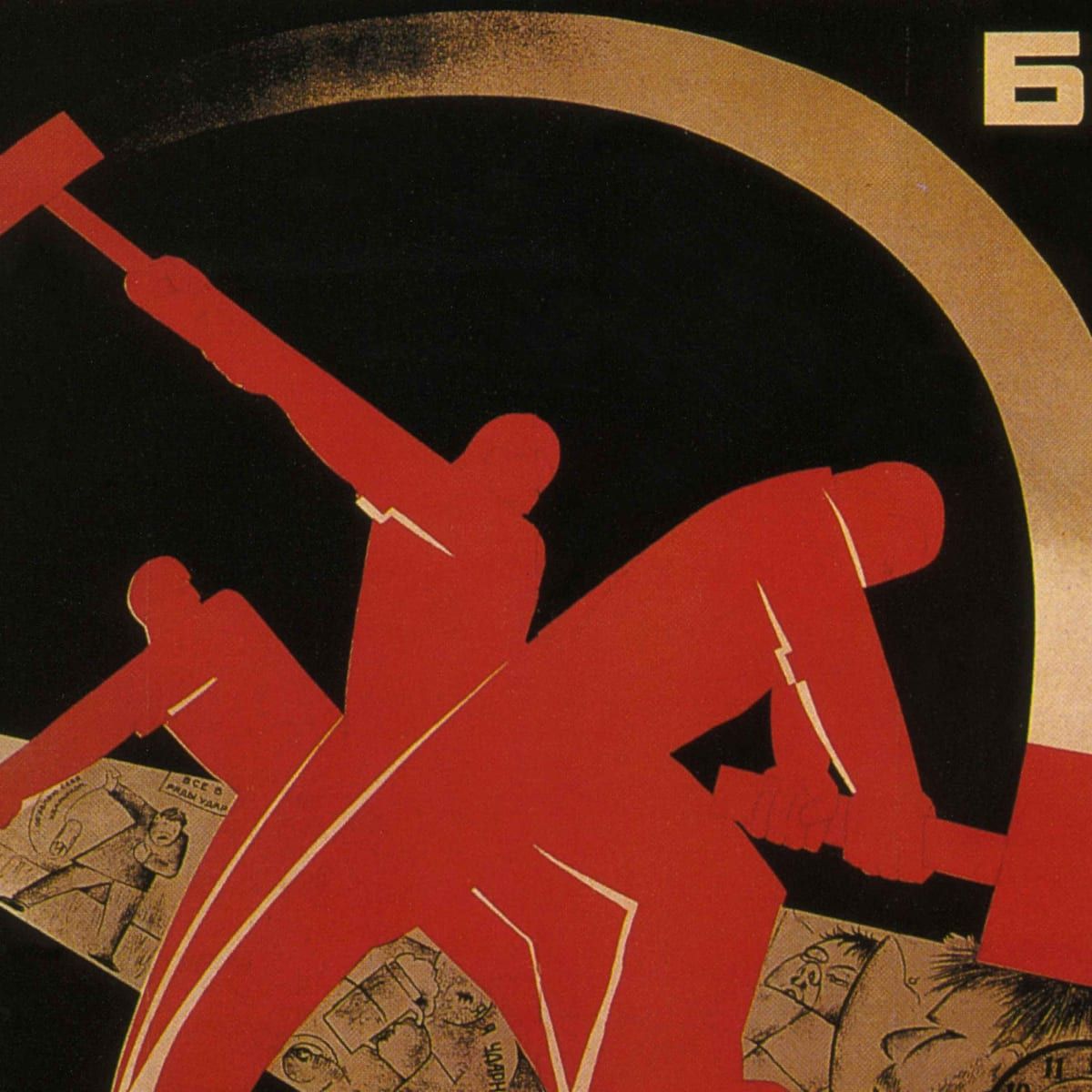
By Lauren Brown Productivity. It’s one of those words that is thrown around – ‘Oh I’ve had such a productive day’. It’s one I’m guilty of using, on those rare occasions where I feel as if my life is tied up into neat ends. It’s the feeling of satisfaction when you manage to get all those tiny tasks on your to-do list ticked off, eat healthily and manage to engage in one of those ‘mind-improving’ habits you set out to do at the beginning at the year. It’s definitely not limited to this sense of personal growth and improvement either but tied inherently into our working lives and culture. It rarely gives us time for rest but instead ‘more’. This productivity culture permeates our lives and is often held up as the way to have more time – that precious ‘more’ time to spend on things we truly love. But as Anne Helen Peterson points out, its mandate is ‘never ‘You figured out how to do my tasks more efficiently, so you get to spend less time working’. It is ‘you figured our how to do your tasks more efficiently, so you must now do more tasks’’. It’s the sense that if you can get that one extra task done a day, you will be far better off for it. And for many, the rewards that come with these tasks (especially those in precarious situations, for whom productivity is just a way to survive basic economic needs) are maybe not all they seem. It’s also tied up in ideals of self-improvement. ‘Oh, if I could just be more productive with my time, I’ll manage to squeeze in Duolingo’. We are taught we must maximise our output (and our consumption for that matter) to be the best we can be, at all times, in every potential area. But we all have a ceiling to this – no one can work infinitely, and at some point, diminishing returns sets in. There’s only so long I can pretend my endless to do list is improving my life, instead of stressing me out that once again I haven’t done X Y and Z. Whilst I could happily spend the rest of this blog theorising how neo- liberalism is a key part of this (don’t worry, I won’t), this sense of disquiet around working cultures has been thrown into sharp relief by the pandemic for many. Debates over whether workers get more done at home or the office are prominent in the news, accompanied by endless articles on burnout culture. Businesses are testing out four-day work weeks – with the caveat that this is obviously to improve productivity, though admittedly through a method that involves ‘working better’. All of these stories question the idea of boundaries. Whether these be physical (home vs an office environment) or mental (when do we ‘switch off’), the pandemic has led to discomfort over our current working practices. I’m a case in point. During the first lockdown, I felt I needed to produce at ever higher rates in order to ‘secure my future’. So I regularly worked 40+ hour weeks (often splitting my time between my supermarket job, research internships and volunteering) as well as finishing my studies. I thought it was normal, desirable even, to only have one ‘proper’ day off a week. I believed this was the best way for me (a busy person even in ‘normal’ pre-pandemic times) to stay sane, to cope with the ever closing walls of the world. But when I compare this to the third lockdown I experienced here in the U.K., this outlook seems obscene and naïve. I struggled to concentrate through my degree and the drudgery of life in my small four walls. However, I still felt I needed to produce at the levels I had been, to make this lockdown a success. I felt I needed to do ‘more’ – I had the time, why wasn’t I doing it? And that’s what is so all-encompassing about this productivity culture. It’s prevalent and fetishized (what do you mean, you don’t have a side hustle?). There’s, as Pandora Sykes identifies in her book Are We Doing it Right?, a status to being busy and getting lots done. It’s also a way of coping with insecure futures and bleak employment prospects. Admittedly this was heightened by a mild personal panic that came with the realisation I was soon to be an unemployed postgraduate student. But is it healthy? It's hard to admit that maybe you can’t improve in every section of your life. That there’s a point where burnout sets in. That maybe you don’t need to learn French or do that typing class, unless you really do have the capacity and desire for it. Maybe we shouldn’t have to be excessively productive. Maybe we should talk about what we actually want for our futures and challenge what we see as normal. I’m not saying productivity is inherently evil and I can’t pretend I’m not sucked into the machinery that surrounds productivity culture. But as time goes on, the apparent need to produce and consume more is one that becomes more questionable to me. At what point can I say I’ve done enough? I might never be able to fully manage the expectations of myself and workplace culture with what actually works for me, but through talking it through, I can start to try.
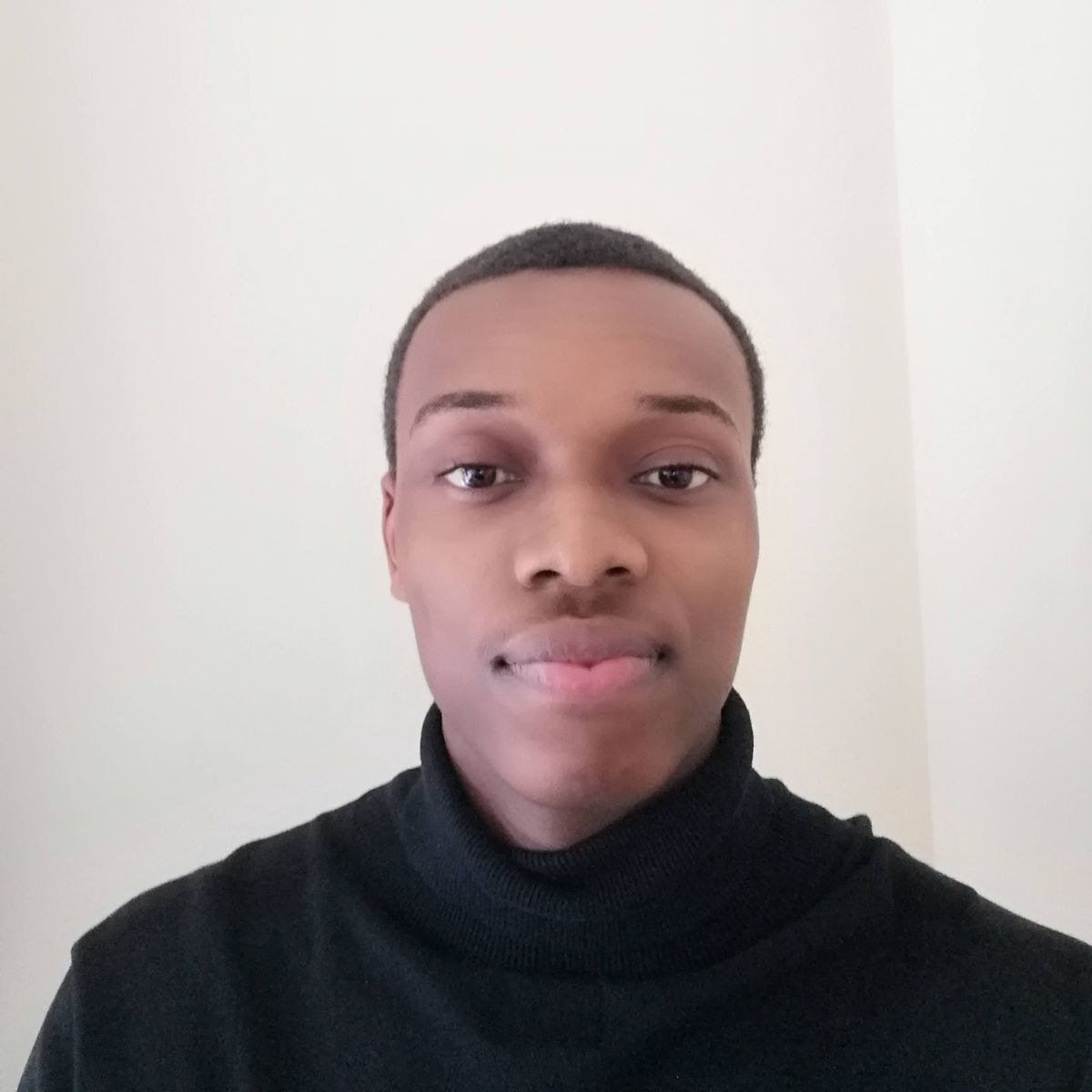
By Sam Ajakaiye Change. It’s such a small word which encompasses so much. So often I reflect on the various ways I want the world to change and yet I also find myself in a position where I must question whether this very act is naive. Negative change is surely worse than the status quo. Social (and, to a certain extent, political) conservatism is often predicated on this understanding that change can easily break down the good things we have whilst failing to replace them with anything of equal, let alone better, value. I am also a university student. University students are famed for their rampant desire for change and their youthful radicalism. In my first year at university, I have witnessed how a surge in the use of social media and a significantly greater awareness of international affairs has led activism to become commonplace amongst a generation of ‘Social Justice Warriors’. I am also a 19-year old black man who does not only feel society’s divides but actively studies the histories behind them in his degree. How could I not desire change when I see how hypocritical greed has led (and still leads) to the crippling of continents, communities and families in places like my homeland, Nigeria. Perhaps I wouldn’t because those same studies have bred within me a deep distrust for the leaders who have the greatest potential for change - stories of poor Nigerian governance are too numerous to count. If you are struggling to grasp where I lie on the political spectrum or what I want for the future of the world, welcome to the club! I do as well. However, I will clarify one thing for you - I do want change. It’s just that, whilst I am hopeful for a better future, I’m also sceptical about it. The reason why I am sceptical is that I have seen how the realisation of ideals doesn't just require more money, or more time, or more planning. They require people to change. If people don’t change the way that they act, the way they think about others (and themselves) and what they aspire towards, any real systematic change is not possible. For example, over the course of last year, systematic/institutional racism came to the fore of many debates once again. However, whilst systematic racism may have a completely different effect to interpersonal racism, it is certain that any system which places people at a disadvantage is rooted in decisions made by people, influenced by their personal approach to life and others. My hope for change is not rooted in seeing declarations made by governments which suggest that policy will be more aligned with the future I wish to see (otherwise I would be in love with the UN). It’s not when I see thousands of people gather on the streets to protest about problems of global importance. It’s not even when I am allowed to feed into conversations which are far beyond my pay-grade (I’m a student so I basically don’t have one) and share my visions for the world. My hope for change increases in those situations where all performance is stripped away and people are at their most open and vulnerable, yet I see genuine concern and kindness expressed towards others. When I see people truly empathise with each others’ struggles, regardless of whether they fully agree with their viewpoint, and have proactive and serious discussions marked by mutual respect. That’s because these are the types of spaces in which policy should be formed. These are the types of conversations that allow society to become naturally diverse. These are the types of people who will use influence to actually serve people rather than simply to boost their ego. Now, I will introduce a dose of scepticism here. As a Christian, the idea that everybody is flawed and has their own struggles is rooted in my worldview. However, I think I can confidently say that you don’t need the Bible to understand that humans aren’t perfect. There will always be people in power who are self-serving and people whose altruistic actions are only performative. But why should that ever be an argument to maintain the status quo? Instead, that fact should drive us to create as many open and genuine spaces as possible for people to learn about others and learn from others. We should prioritise creating opportunities for individuals to express themselves openly and then take each others’ concerns and opinions seriously. We should allow for debates which enable us to question each others’ views and find solutions to the different problems we experience and perceive. I am still sceptical about how many people will truly change from these spaces but that’s the thing about change - things will be uncertain. These conversations can only function as a starting point of change but, if we neglect this crucial initial point, how can we expect a different end product?

By Andreea Petre-Goncalves This is a long article. If you read nothing else, just read this. There’s a simple and powerful way to turn suspicion and conspiracy into hope and connection. We’ve been testing it in the private spaces where we are our true selves, coming together around the things we love. Like football. And food. We’ve built a model for change that can connect us around what matters and restore trust in our public sphere and public systems. With it we can transform society and renew our bonds with each other, feeling empowered and energised in the process. Summing up two years of Flare’s experiment in hope There’s a Romanian saying that paraphrased and stripped of its humour goes “ the cracks don’t appear where you strike ” (Unde dai si unde crapa). It’s an expression of surprise at unintended consequences, with a hint of amusement, or exasperation, depending on the circumstances. Nearly two years into the hope project and foray into the wilderness that is Flare, the most exquisite thing we have to show for it - except for what a cool team we are - is an unusual hypothesis. We came to it through instinct, experiments, feeling and most delightfully – accident. Accident in that we were looking for something else, not unrelated, but a touch less ambitious. And there it was, a powerful insight into what is possible. We struck the wall in one place and got a crack somewhere unexpected. We are experimenting with bridging the chasm of mistrust that separates our private lives from the public systems that struggle under the weight of our unmet expectations. From this point onwards our work will focus even more resolutely on reconnecting our private and public lives to help hope emerge. We will do it in the spaces we all love, around the dinner table, on the football pitch and wherever else we feel like our true selves. This is not madness. It’s reclaiming power over our lives. In some spaces we trust and hear each other In the autumn of 2020, at Flare we were busy helping to deliver a collective narrative through clever methods, in a thrilling project on the future of football (more on this really soon). Unexpectedly, like angels singing, or rainbows in a summer storm, what we were looking for emerged 20 paces away from where we were digging. We struck and the cracks appeared elsewhere. We discovered that shared moral stories take shape without much prompting when people come together around something that they genuinely, truly value. When we gave folk space to talk about their love of football, what came out like a rousing drumbeat were stories of shared values: community, belonging, being part of something bigger than oneself, fairness. Check out this wonderful example here . Football is a common , an immaterial one, a shared precious thing that scores of people bond around instantly, whatever life path brings them there. And in this space that genuinely connects without the need for words, we were seeing what we had been pursuing tirelessly since Flare was born - a shared story of who we are as people, what matters, what the future should bring. Our hypothesis therefore is that shared moral narratives - upon which we can rebuild the world - emerge in the commons, and that real-life spaces are where we should pursue them. From the football pitch to the dinner table Our discovery shone new light onto our food project, frozen in time since we were thrown into lockdown two weeks before delivery in March last year. We called it “ Speaking one language for the future of food” . Pre-COVID we focused on helping people talk differently about food through methodology. In its new iteration, we are creating space for connection in the only place where food is truly a common: where we share it, where we express love with it, where it builds bridges to our past, where it tells the story of who we are. Not in the conference room or the policy debate or the righteous campaign or the marketing wheeze. At the stove and around the table. Where we feed friends the treats our grandmothers once made for us as children. Where history and the human journey come alive in the enjoyment of the same things in different corners of the world. Where the stories are told and we are together as human beings, whatever hats and labels and boxes we’re in the rest of the time. Where civil servants or salesmen or righteous campaigners can take comfort in our shared humanity. That’s how we will speak one language for the future of food. What we have in common, our shared morality. This is where we bring people together, be they officials, parliamentarians, refugees, the man in the corner shop and anybody else. The narrative thing again Our new world will be redefined by the stories we tell about ourselves and our future. Will we be angry, caring, generous, suspicious, cautious, greedy or cavalier? What sorts of things will matter to us? Whose interests will prevail? These stories are what we mean when we talk about a shared narrative. We can’t contrive a shared narrative, we can’t build it out of sticks and stones, it has to emerge of its own accord, it has to make our hearts swell and give us the courage to do new things and start again. Like the empowerment of the oppressed, heaven for the righteous or enrichment through ambition, it has to stir our passions and make us want to be part of it. It has to feel like our story, the distilled expression of our true selves. QAnon and far-right populism are emerging shared narratives. They are feeding on the growing chasm between our public and our private spheres, then mistrust we have developed in our systems and our elites. It’s no good feeling superior to the people who espouse them, their grievances are legitimate. A genuinely felt and owned shared story - or narrative - will move us away from these aberrations. Something better, that brings our best selves forward. Our job is to help that precious “something” emerge from hopelessness and rage. Reconnecting public and private life I’ve spent my entire career pursuing change in the corridors of power. The world looked different 20 years ago. So much more seemed clear then. Around me today are masses of people who believe the cards are stacked against them, that their voice is never heard, that their private fears and hopes are not reflected in the public space. The challenge nowadays is not just to secure policy change. To run successful campaigns. Our language and instincts are rooted in our old world and our old ways. The real task is to restore faith in the idea that our societies can deliver on our dreams and keep us safe from the things we fear. To do this we need to feel we are on the same team again. The chasm between our private selves and the seats of power needs to narrow, and fast. As odd as it may sound to those like me who’ve spent their lives pursuing top-down change, the dinner table and the football pitch are better placed right now to deliver what we need. When I started Flare I was warned repeatedly it was going to be impossible to get important people to ditch the garlands of their performative lives and step into a more informal space where they can truly connect with those they represent. Time and time again, we’ve proven that wrong. We’re about to do it again. We’re not mad. We can change society by breaking bread together. Join us.

